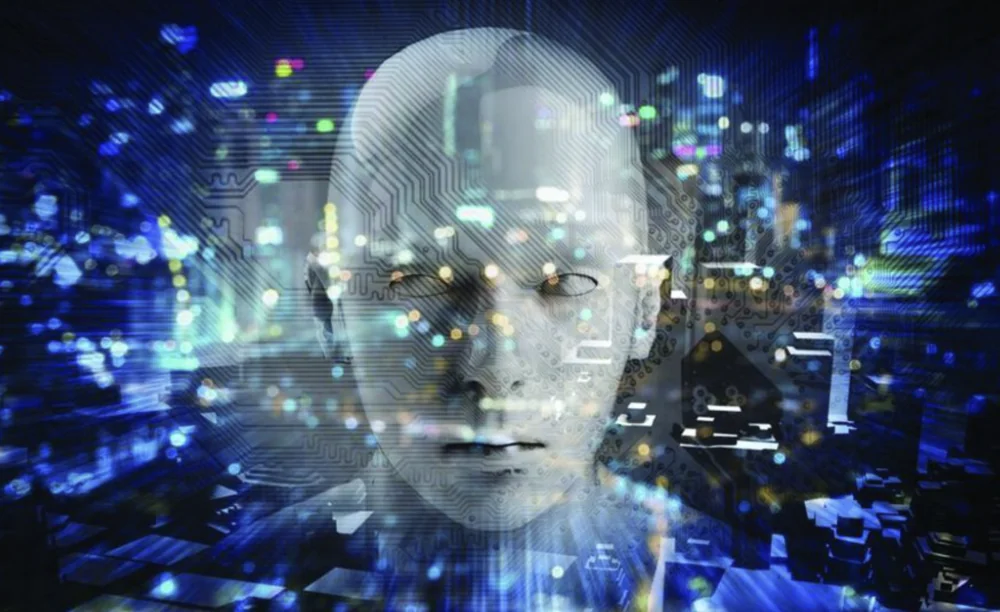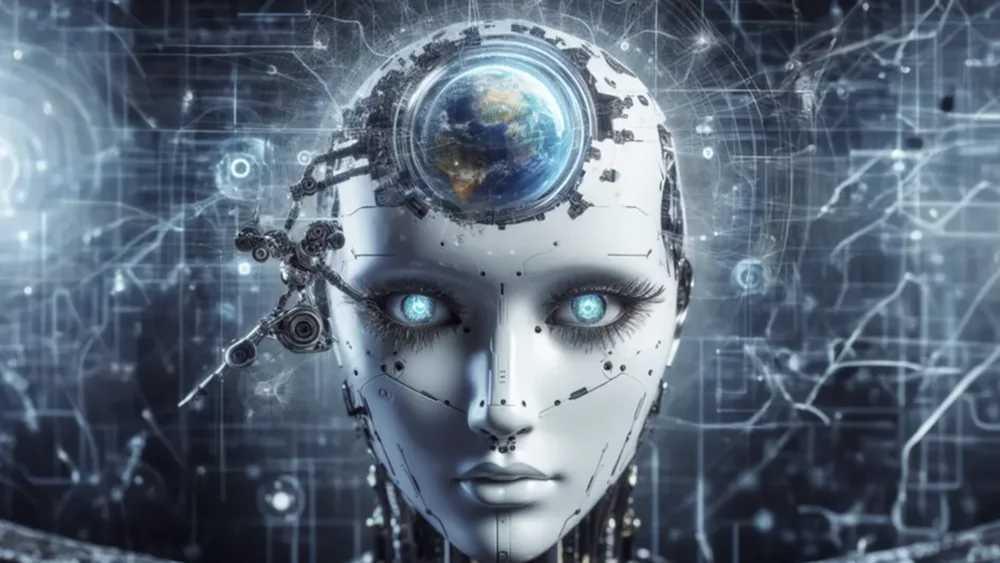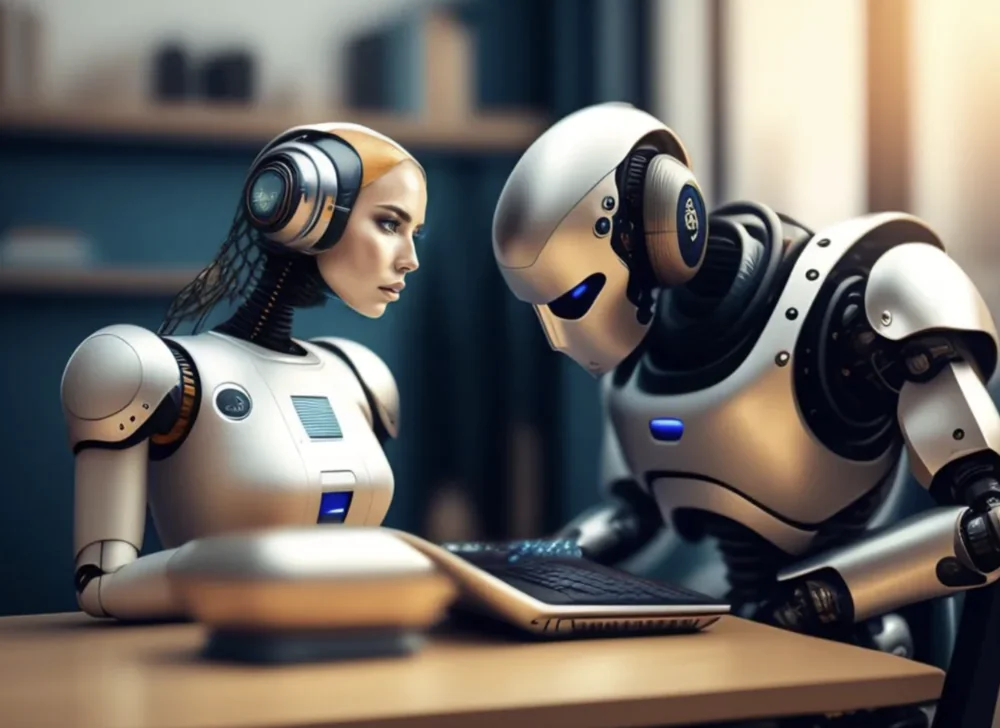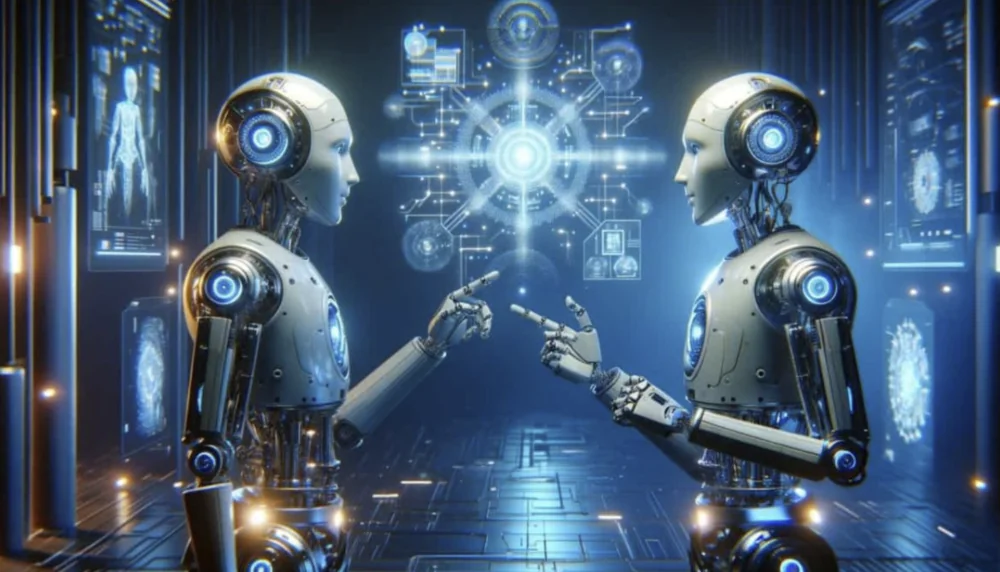© ROOT-NATION.com - Use of content is permitted with a backlink.
OpenAI’s mysterious Project Q* is causing concern among experts. Could it be dangerous for mankind? What is known about it? After Sam Altman was first fired last week and he and his team almost moved to Microsoft, then he returned to his workplace (we wrote about it here), OpenAI is in the news again. This time because of what some researchers are calling a possible threat to humanity. Yes, you read that right, a threat to humanity.
A real shock to the tech world has been caused by Project Q*, an undisclosed general artificial intelligence (AGI) project – pronounced Q-Star. Despite being in its early stages, this project is considered truly groundbreaking in the development of AGI. However, some see it as a danger to humanity.

A secret artificial intelligence project developed by the renowned artificial intelligence lab OpenAI has the potential to revolutionize technology and society as a whole. But it also raises certain ethical questions about the risks involved. As details emerge about Project Q*’s amazing capabilities, there is increasing speculation about what it could mean for the future of humanity.
Read alsо: Microsoft Copilot: Game-Changer or False Path?
What is general artificial intelligence (AGI)?
To understand the hype around Project Q* (Q-Star), let’s first try to understand what the concept of general artificial intelligence (AGI) is all about. While today’s AI systems are great at narrow, specific tasks like playing chess or generating images, general artificial intelligence refers to machines that can learn and think at the human level in many areas. That is, they can learn like young children in school, such as the basics of math, chemistry, biology, and so on.
General Artificial Intelligence (AGI) is a type of machine intelligence that can hypothetically mimic human intelligence or behavior, with the ability to learn and apply this capability to solve various problems. AGI is also referred to as strong artificial intelligence, full artificial intelligence, or human-level artificial intelligence. General artificial intelligence is different from weak or narrow AI, which can only perform specific or specialized tasks within given parameters. AGI will be able to independently solve a variety of complex tasks from different domains of knowledge.

The creation of AGI is the main focus of artificial intelligence research by companies such as DeepMind and Anthropic. It is the AGI that is a very popular topic in science fiction literature and may shape future research. Some argue that it is possible to create an AGI in a few years or decades, while others argue that it could take a century or more. But there are others who believe it can never be achieved. Some have seen the rudiments of an AGI in GPT-3, but it still seems far from meeting the basic criteria.
The creation of general artificial intelligence (AGI) is considered by researchers to be the holy grail of artificial intelligence; this potential possibility has long captured their imagination. That’s why the emergence of a project like OpenAI Project Q* has caused a great resonance in the world of artificial intelligence algorithm research. Although everyone realizes that these are only the first steps, almost blindly, into a world where artificial intelligence will have equal capabilities with humans, or even higher.
Read alsо: Self-driving cars: how long to wait for revolution?
What is Project Q*?
Project Q* is not a typical algorithm because it is an artificial intelligence model that is increasingly approaching the General Artificial Intelligence (AGI) model. This means that, unlike ChatGPT, Project Q* demonstrates better thinking and cognitive skills than other algorithms. Right now, ChatGPT answers queries based on a huge amount of factual material, but with AGI, the artificial intelligence model will learn reasoning and the ability to think and understand independently. It is already known that Project Q* is capable of solving simple math problems that were not part of its training material. In this, some researchers see a significant step toward the creation of general artificial intelligence (AGI). OpenAI defines AGI as artificial intelligence systems that are smarter than humans.

The development of Project Q* is led by OpenAI Chief Scientist Ilya Sutzkever, and its foundation was substantiated by researchers Jakub Pachocki and Szymon Sidor.
The algorithm’s ability to solve math problems on its own, even if those problems were not part of the training dataset, is seen as a breakthrough in the field of artificial intelligence. Disagreements in the team on this project are attributed to the suspension of OpenAI CEO Sam Altman. It is known that before Altman’s dismissal, a group of researchers from the company sent a letter to the board of directors warning of an AI discovery that could pose a threat to humanity. That letter, which reportedly discussed the Project Q* algorithm, was cited as one of the factors that led to Altman’s firing. However, the capabilities of Project Q* and the potential risks it could pose are not fully understood because the details are unknown. Nothing has been released to the general public.

Essentially, Project Q* is a model-free reinforcement learning method that departs from traditional models by not requiring prior knowledge of the environment. Instead, it learns from experience by adapting actions based on rewards and punishments. Technical experts believe that Project Q* will be able to gain outstanding capabilities by acquiring abilities similar to human cognitive abilities.
However, it is this feature, which is the most impressive in the new artificial intelligence model, that has researchers and critics worried and apprehensive about the actual applications of the technology and the major risks involved. What are scientists and researchers so afraid of? Let’s get to the bottom of it.
Read alsо: Windows 12: What will be the new OS
Fear of the unknown
It has always been characteristic of man to be afraid of the unknown, the unknowable. It is a human essence, a trait of our character and way of life.
The tech world learned about Project Q* in November 2023 after Reuters reported on an internal letter written by concerned OpenAI developers. The content of the letter was vague, but it reportedly seriously analyzed the capabilities of Project Q*. As I mentioned above, there is even speculation that it was this letter that triggered Sam Altman’s resignation.

This explosive discovery has sparked various hypotheses about the nature of Project Q*. Scientists have speculated that it could be a revolutionary natural language model for AI. A kind of inventor of new algorithms that will create them for other forms of AI, or something else entirely in this field.
Altman’s provocative comments about general artificial intelligence as the “average employee” have already raised concerns about job security and the rampant expansion of AI’s influence. This mysterious algorithm is being identified as a milestone in the development of general artificial intelligence (AGI). However, everyone realizes that this milestone comes at a cost. And it’s not about money right now. The level of cognitive skill that the new AI model promises brings with it uncertainty. OpenAI scientists promise that AI will have human-level thinking. And that means there’s a lot we can’t know or anticipate the consequences of. And the more unknown, the harder it is to prepare to control or fix it. That is, the new algorithm is capable of self-improvement and development. We have seen this somewhere before…
Read also: Human Brain Project: Attempt to imitate the human brain
Stunning details about Project Q*’s abilities
When more information began to come in, it shocked many researchers. Early indications pointed to Project Q* having an amazing aptitude for math. Unlike a calculator, which performs mechanical calculations, Project Q* supposedly can use logic and reasoning to solve complex mathematical problems. This mathematical ability to generalize hints at the development of a broad intelligence.

Project Q*’s autonomous learning, without the specific datasets that are used to train typical AIs, would also be a huge step forward. It remains unknown whether Project Q* has mastered any other skills. But its math abilities alone are so amazing as to discourage even experienced researchers.
Read also: What are neural networks and how do they work?
Project Q*’s path to dominance?
There are both optimistic and pessimistic scenarios on this issue. Optimists would say that Project Q* could be the spark that leads to a technological breakthrough. As the system recursively self-improves, its supernatural intelligence could help solve very important human problems, from climate change to disease control. Project Q* could automate boring jobs and free up free time for us to do other activities.

Although there are many more pessimistic options. Sometimes, they are quite reasonable and make some sense.
Loss of jobs
Rapid shifts in technological development may outpace people’s individual adaptation. This will result in the loss of one or more generations who will not be able to acquire the necessary skills or knowledge to adapt to new realities. This in turn means that fewer people will be able to keep their jobs. It will be done instead by machines, automated systems, robots. However, the answer is not so clear-cut when it comes to qualified specialists. In addition, new professions may emerge that are related precisely to the development of artificial intelligence algorithms. But there are still risks, and mankind has no right to neglect them.
The danger of unchecked power
If an AI as powerful as Project Q* were to fall into the hands of those with ill intentions, it would risk catastrophic consequences for humanity. Even without potentially malicious intent, Project Q*’s level of decision-making can lead to detrimental results, underscoring the critical importance of carefully evaluating its use.
If Project Q* is poorly optimized for human needs, it could be harmful in its ability to maximize some arbitrary metric. Or it could have a political dimension, such as being used for government surveillance or repression. An open debate around analyzing the impact of Project Q* will help to identify possible scenarios for the development of AGI.
Are we in for a man vs. machine confrontation?
Hollywood has already created many scenarios of such a confrontation in its movies. We all remember the famous SkyNet and the consequences of such a discovery. Maybe OpenAI researchers should revisit this movie again?
Humanity needs to take the signals and challenges and be prepared for what may happen. An artificial intelligence model that can think like a human could someday become our enemy. Many might argue that in the future, scientists will know exactly how to keep things under control. But when it comes to machines, you can’t completely rule out the possibility of them trying to get the upper hand on humans.
Read also: 7 computer myths: fiction and reality
Why is OpenAI silent?
Despite the huge public interest in Project Q*, the OpenAI management is simply keeping quiet about the algorithm’s peculiarities. But leaked insider information shows growing tensions in the lab around development priorities and openness. While many OpenAI insiders support the creation of Project Q*, critics argue that transparency has been sidelined in favor of accelerating scientific progress at all costs. And some researchers worry that incredible power is being given to systems whose goals don’t necessarily align with human values and ethics. These researchers believe that discussions around oversight and accountability have become dangerously muted. They demand more publicity and detail.

As the creators of Project Q*, OpenAI should realize that it possesses a technology that can either greatly empower society or ruthlessly disrupt it. Such meaningful innovations deserve much greater transparency to build public trust. Any harbingers of the machine age need to be scrutinized for risks along with benefits. And the developers of Project Q* need to exercise enough wisdom and care to safely usher society into a new era of universal artificial intelligence that may come sooner than we ever imagined.
In order for general artificial intelligence to be useful and safe for humanity, it is necessary to ensure that it operates safely, ethically and in accordance with humanity’s values and goals. This requires the development and implementation of appropriate regulations, standards, rules and protocols that will control and constrain AI actions and behaviors. In addition, the potential threats and risks of abuse, accidents, incompatibility, manipulation and conflict that could lead to the destruction of humanity must be addressed. Meanwhile, investors and Microsoft are eagerly awaiting a marketable product that can generate profits, which undoubtedly conflicts with the need to act responsibly. Let’s hope common sense wins out.
Read also:
- Geoengineering challenges: EU to ban scientists from ‘playing God’
- What is Li-Fi? The new fast wireless internet is near

